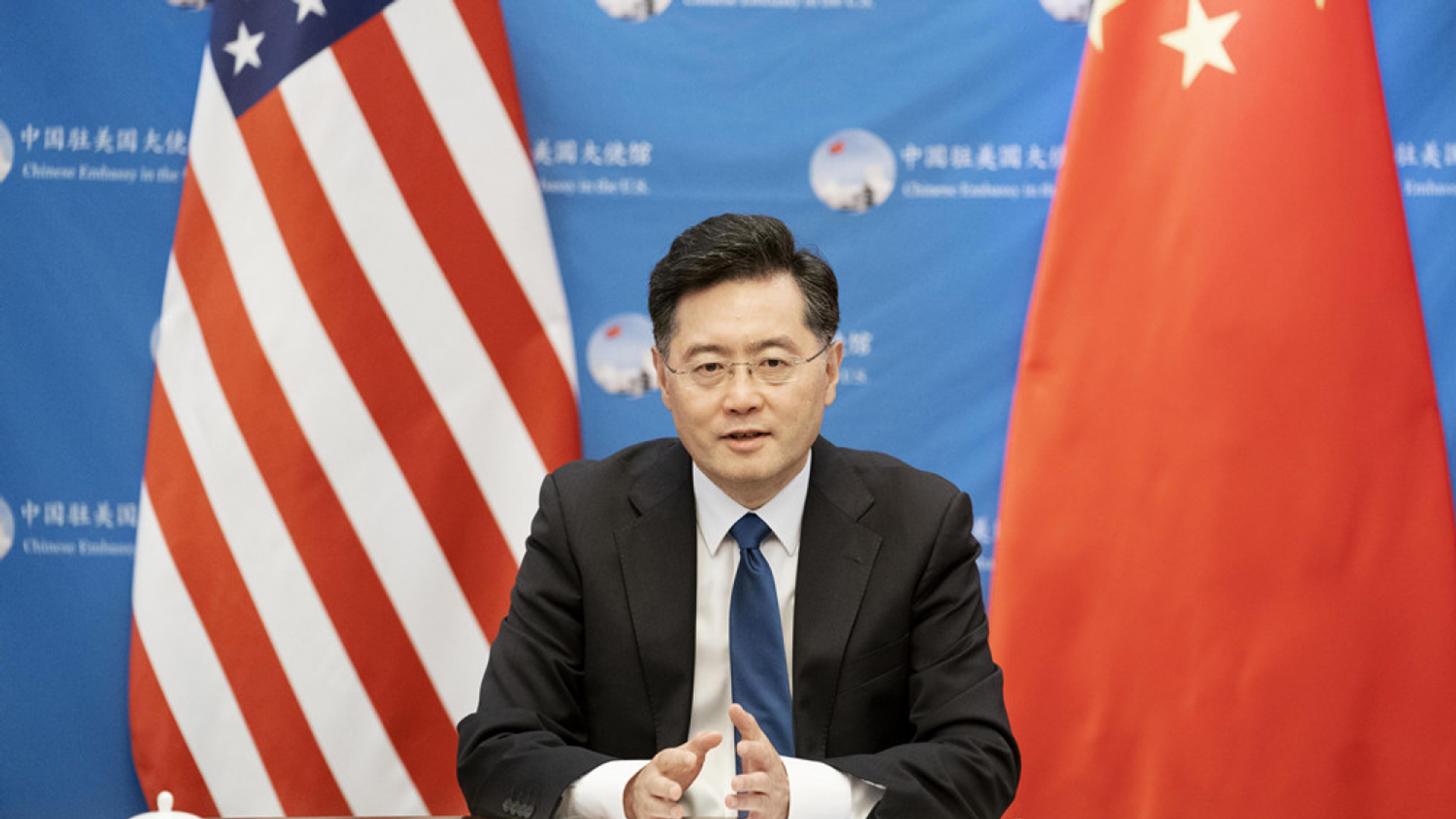China’s US Envoy Says Beijing Would’ve ‘Tried Our Best to Prevent’ Ukraine Conflict in WaPo Op-Ed
19:42 GMT 16.03.2022 (Updated: 12:43 GMT 19.06.2023)
Subscribe
US media have claimed ever since Russia launched its special operation in Ukraine last month that Moscow had secretly coordinated the decision with Beijing, provoking calls for sanctions against China to punish them for doing so.
“There have been claims that China had prior knowledge of Russia’s military action and demanded Russia delay it until the Winter Olympics concluded. Recent rumors further claimed that Russia was seeking military assistance from China. Let me say this responsibly: Assertions that China knew about, acquiesced to or tacitly supported this war are purely disinformation,” Chinese Ambassador to the United States Qin Gang wrote on Tuesday in an op-ed published by the Washington Post.
“Had China known about the imminent crisis, we would have tried our best to prevent it,” Qin said. He noted China had “made huge efforts” to encourage peace talks and to help with the humanitarian situation created by millions of Ukrainians fleeing from the conflict.
The article was provoked by persistent claims in the US media that China had helped coordinate the timing of Russia’s special operation aimed at rendering Ukraine a neutral country instead of a prospective NATO ally, which began on February 24.
One widely-cited article in the New York Times on March 2 claimed that “senior Chinese officials told senior Russian officials in early February not to invade Ukraine before the end of the Winter Olympics in Beijing,” which ended on February 20. The report cited anonymous “senior Biden administration officials and a European official.”
Of course, before the Olympics began, US officials claimed China wanted Russia to “invade” Ukraine before they started on February 4 or after they ended, and then during the Olympic games they claimed Russia might do so before the games ended, too.
Chinese Foreign Ministry spokesperson Zhao Lijian told reporters last week that the NYT’s claim was a “downright lie.”
“The US has been disseminating disinformation about China on the Ukraine issue, with the attempt to shift blame, stoke confrontation and profit from the issue,” Zhao said. “The practice is despicable and malicious … The more it racks its brains to discredit China with lies and hype things up, the more it exposes its credibility deficit to the international community.”
Since 2017, Washington has regarded “great power competition” with Russia and China as its primary strategic focus, inaugurating new de facto alliances like AUKUS and waging an all-out information war to demonize the two countries and their inhabitants. Both US activists and the Chinese government have decried a sharp spike in violent attacks on Asian-Americans and Asians in the US as being driven by US anti-Chinese propaganda, and Russophobia has become far more prevalent in the US in recent weeks.
As a consequence, Russia and China have grown increasingly close, with Zhao saying there was “no limit, no forbidden zone and no ceiling to China-Russia cooperation” following an early February summit between Russian President Vladimir Putin and Chinese President Xi Jinping. While the two nations have never declared a formal alliance because they oppose creating exclusive political blocs, the New York Times didn’t hesitate to accuse them of forming an “alliance of autocracies” and “A New Axis,” comparing them to the 1930s alliance between Nazi Germany and Fascist Italy that prepared the ground for World War II.
Qin noted that all parties, including NATO, must change their policies and behavior if “long-term peace and stability” is to be achieved in Europe.
“As a Chinese proverb goes, it takes more than one cold day to freeze three feet of ice,” the ambassador wrote. “There must be a balanced, effective and sustainable European security architecture.”
Taiwan, Ukraine ‘Totally Different Things’
Another theory floated among political commentators and military elites alike is that China may try to use the situation in Ukraine to launch an invasion of Taiwan, which Beijing regards as a Chinese province in rebellion. In his Tuesday op-ed, Qin addressed this “mistake,” pointing out the differences in the two situations.
“These are totally different things. Ukraine is a sovereign state, while Taiwan is an inseparable part of China’s territory. The Taiwan question is a Chinese internal affair. It does not make sense for people to emphasize the principle of sovereignty on Ukraine while hurting China’s sovereignty and territorial integrity on Taiwan. The future of Taiwan lies in peaceful development of cross-Strait relations and the reunification of China. We are committed to peaceful reunification, but we also retain all options to curb ‘Taiwan independence,’” the Chinese envoy wrote.
Qin added that the US should “earnestly abide” by the one-China principle that it agreed to when the US and China normalized diplomatic relations 40 years ago, which means not supporting the government in Taiwan or encouraging its independence from Beijing by sending weapons or political visits.
“To ensure long-term peace and stability across the Taiwan Strait, China and the United States must work together to contain ‘Taiwan independence,’” Qin said.
Yet another such theory was promulgated in the media on Wednesday, beginning with a report by Taiwan Central News Agency before making its way into US media. According to the report, a Russian dissident in France published letters purported to be from an analyst in Russia’s FSB intelligence service claiming China had been "considering taking over Taiwan in the fall,” but their plans were thrown off by Russia’s Ukraine operation. The report claimed Xi wanted to use the operation as a popularity booster ahead of seeking an unprecedented third term as president.


